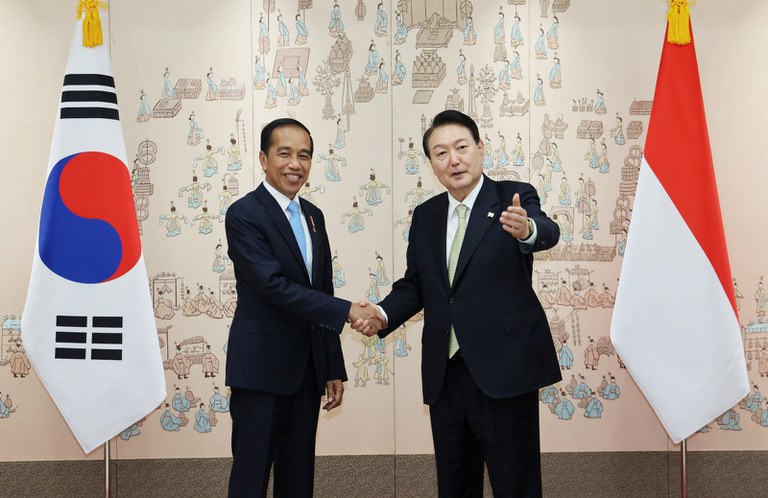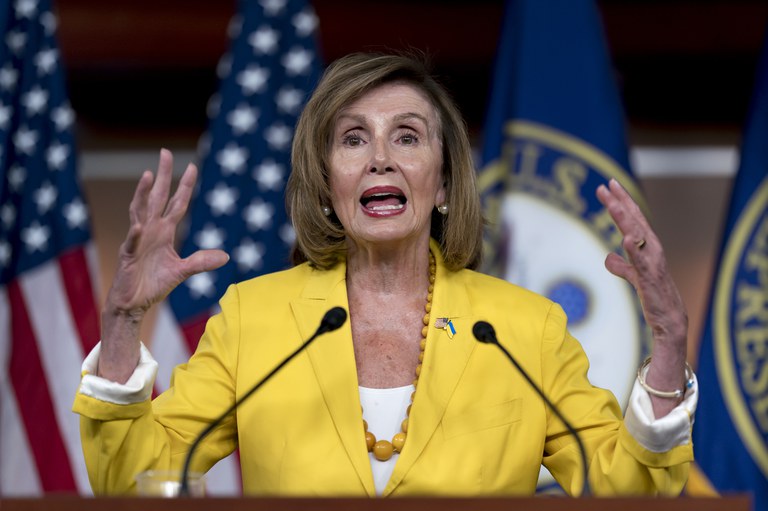
‘Hungry river’ phenomenon to blame for severe erosion of Mekong River banks in Laos
Upstream dams and sand mining have caused significant erosion along the Mekong River in western Laos, according to experts, devastating riparian communities in the impoverished Southeast Asian nation with high waters and powerful currents. But residents of those communities say they believe that other issues are to blame. Brian Eyler, director of the Southeast Asia Program and the Energy, Water, and Sustainability Program at the Stimson Center in Washington, D.C., said upstream activities had created a “hungry river” phenomenon responsible for the severe erosion. “There is a natural phenomenon called a ‘hungry river’ where a river which has been robbed of its sediments looks for new sediment to fill its course,” he said. “Sediment is taken out of a river system by upstream dams and sand mining, so when the river goes ‘hungry’ it pulls new sediment into it from river banks through erosion processes.” “Upstream dams in China have removed more than half of the sediment from the Mekong mainstream and now that Laos has built about 100 dams, the effects are being felt even more severely,” he said. If dams must be built, their designs should include sediment flushing mechanisms to allow sediment to pass through the structure, Eyler said. If they don’t include the flushing systems, the situation will “get worse and worse because the river will get hungrier and hungrier as time passes,” he added. Direct impact The dams are part of Laos’ ambitious plan to become the “battery of Southeast Asia” and boost the landlocked nation’s economy by selling the generated electricity to neighboring countries like Thailand. But the projects are controversial because of their environmental impact, displacement of villagers, and financial and power demand arrangements. Ian Baird, director of the Center for Southeast Asia Studies at the University of Wisconsin-Madison, said there are many factors responsible for the Mekong River erosion, including sand dredging and deforestation, though he agreed that the main cause is the “hungry water” phenomenon. “This phenomenon takes place because all the dams on the Mekong River collect all the sediment, [and] the water released from the dams has less sediment,” he said. “When the water gets hungrier, it causes erosion along the Mekong River bank in the region below the dams.” The erosion has a direct impact on riparian communities, causing the collapse of roads, and the washing away of land, forcing Laotians who live near the riverbank to relocate, Baird said. “The villagers who used to grow vegetables like tomatoes and chili peppers in the dry season on the riverbank can’t do that anymore,” he said. “If they still want to grow vegetables, they’ll have to grow them on higher ground, to which they’ll have to pump the water up. They’ll have to pay for electricity [to do that].” Growing vegetables on higher ground also means that the crops will not benefit from river sediment that acts as a natural fertilizer, so farmers will have to buy fertilizer as well, Baird said. Land subsidence from erosion has cracked this road near the bank of the Mekong River in Paksan, Bolikhamxay province, central Laos, July 16, 2022. Credit: RFA Many erosion ‘hotspots’ Lao officials point to other possible explanations for the erosion that wipes out houses and land in riparian communities. In Bokeo province in the northern part of the country, an entire village of 300 households was lost to the river over the past 24 years due to powerful waves caused by ship movement, an official from the province’s Natural Resources and Environment Department told RFA. “The culprit is the large and heavy ships weighing up to 100 tons running through the river,” he said. “The ships are the worst enemies of the riverbank. Their strong waves destroy the riverbank. Some waves are more than one meter (3.3 feet) high.” At least 73 kilometers (45 miles) of the 179 kilometers (111 miles) of Mekong River bank in central Laos’ Borikhamxay province is severely eroded, said Vixay Phoumy, director of the province’s Public Works and Transport Department at the agency’s annual meeting on July 7. Only 21 kilometers (13 miles) of the stretch is protected by retaining walls. “We have many hotspots in Thaphabath and Borikhan districts where the erosion is worse,” an official from the province’s Natural Resources and Environment Department told RFA. “From our inspection, we know that the riverbank slides down the most in the rainy season,” he said. “Of course, some homes and farmland have been washed away too.” Farther downstream, strong currents in the Mekong have eroded about 90 kilometers, or nearly 50%, of riverbank, in Saravan province, an official of the province’s Natural Resources and Environment Department told RFA. A stretch of eroded riverbank along the Mekong River in Pakkading district, Bolikhamxay province, central Laos, July 2022. Credit: RFA ‘Our common problem’ The severe erosion is not confined to the Laos side of the Mekong River and affects banks on the Thai side as well, said Omboon Thipsuna, secretary-general of the Mekong Community Organizations Network Association, 7 Provinces, Northeastern Region (NCPO) in Thailand. “The main cause is the upstream dams releasing and holding water,” she told RFA. “It’s obvious that the sediment has disappeared.” “The water goes up and down,” she said. “They [riparian residents] see it tumbling down every day.” Thipsuna called for bilateral talks between Laos and Thailand to find a solution to the erosion issue. “It’s our common problem,” she said. The Sanakham Dam, a proposed hydropower project on the Mekong mainstream between Xayaburi and Vientiane provinces in Laos will make the erosion worse, she said, adding that water levels currently can go up to four meters (13 meters) high daily. The cash-strapped Lao government can only afford to build erosion-prevention barriers in a few locations, leaving the residents of many other areas to deal with the issue on their own. “The Mekong River bank erosion has been occurring for years, causing a lot of concerns to our riparian residents,” said a villager in the town of Paksan, capital of…





